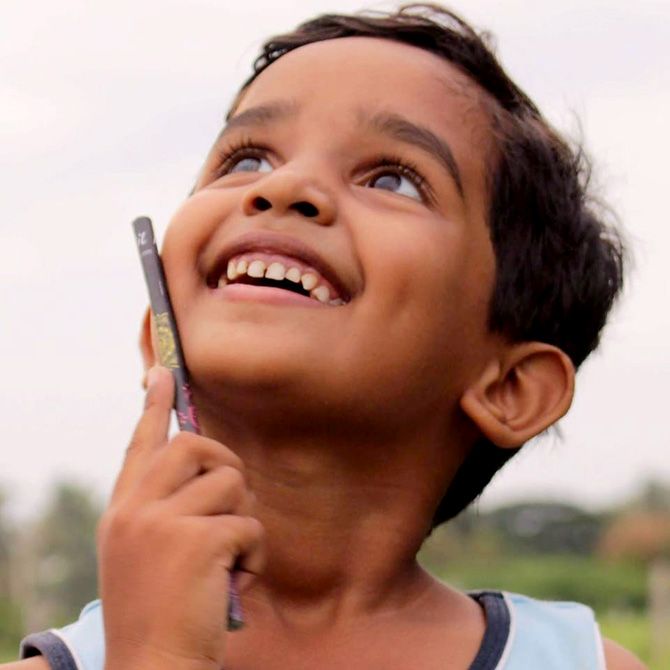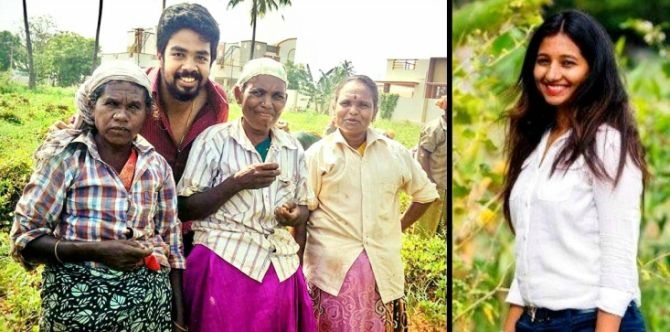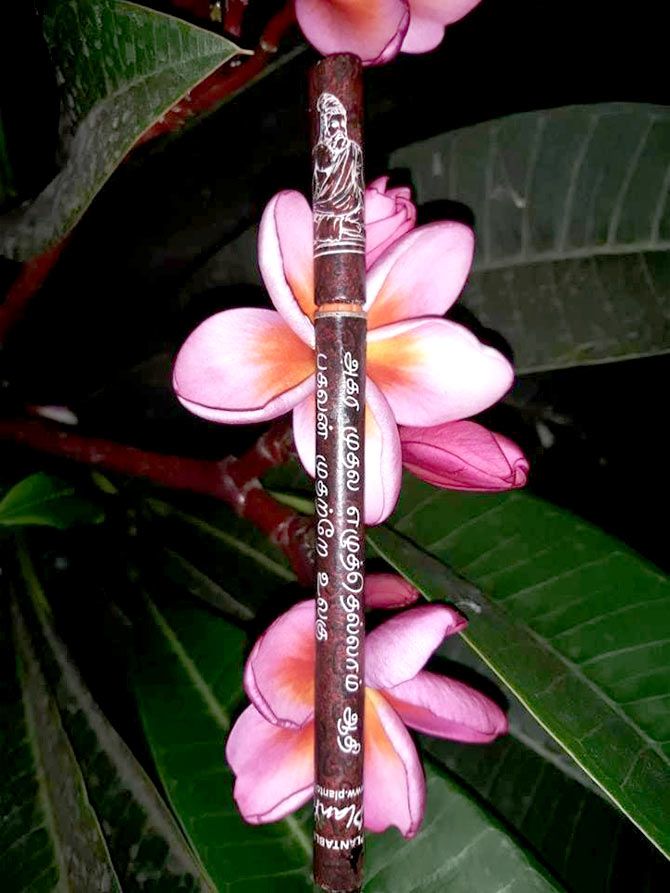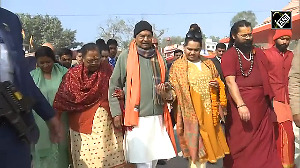Two young entrepreneurs from Tamil Nadu are making pencils eco-friendly.
Sneha Bhattacharjee reports.

Photograph: @ishplantcil/Facebook.
How many wooden pencils do you think a 20-foot pine tree could generate? Actually just 2,500.
Over 8 million trees are cut per year to produce just pencils.
Such alarming statistics got two young entrepreneurs working with the farming community in Tamil Nadu, thinking.
Vishnu Vardhan and Divya Shetty, co-founders of Indian Superheroes, were two Indians working in one of the MNCs in Bengaluru as Instructional Designers. In late 2014, when reports of farmer suicides hit the headlines, both Vardhan and Shetty were extremely upset.
"Divya's grandfather was a farmer who had committed suicide when she was only eight," says Vardhan, adding that even years later, things had not really changed, "Our farmers never got their due."
Come 2015, they launched Indian Superheroes, a social enterprise aimed at enabling marginalised organic farmers to make low-cost value additions to agricultural produce, and upsell to customers directly, without middlemen intervention.
"We had two organic farmers onboard when we started, now we have over 843 organic farmers, 12 NGOs, and over 200 tribals who work with us. We had an offline model, and in early 2017, we launched an online portal, www.indianorganic.store," says a proud Vardhan.

Photograph: @indiansuperheroes_official/Instagram and Divya Shetty/LinkedIn.
It was during this assignment, while working with farmers, that they realised how indiscriminate cutting of trees was the primary reason for the water crisis faced today.
"Over 13 million hectares of forest is lost to deforestation, of which, 36 per cent is for paper manufacturing and 42 per cent for manufacturing timber-based products that constitutes 18-20 billion pencils," says Vardhan.
These statistics were enough to make Vardhan and Shetty ponder over the use of recycled paper to make pencils. "We decided to mitigate two evils at once and that's how Plantcil was born," says Vardhan.
"These pencils are made from newspapers and 100 per cent recycled and used papers. We collect newspapers from various schools in Coimbatore and in exchange, provide them with monthly supply of pencils -- the kids just love us," Vardhan adds.
They have multiple variants, classic black-themed pencils with Indian ethnic prints, rainbow pencils that make rainbows when sharpened, velvet pencils that are made in bright colors, especially for the younger kids, and are soft to hold and write.
There are also fruit pencils that come in different smells such as pineapple, cocoa, orange, green apple, etc.
That is not all. There are seed pencils that have plant seeds embedded in them.
"We procure native seeds like chilli, spinach, beans, tomatoes and brinjal directly from our farmer network. Students can plant the pencil once it is too short to use and water it. In a few days, a new plant sprouts to life from it," says Vardhan adding, "we are also working on ecofriendly pens with zero plastic.

Photograph: @ishplantcil/Facebook.
With a minimum order of 110 and a fan following that spans across generations, from young children to big corporates, Vardhan and Shetty have been able to make 100 per cent customised pencils and pens for their respective audiences.
They have even formed a group for the young children to enable them to learn interesting art and craftwork from used papers, plant trees and grow their own crops in the school backyard.
For the designer duo however, the journey that has been immensely satisfying and interesting, has only begun.
"We are very happy with what we have done till now. The focus now is to expand in other cities and make this a pan-India movement," says Vardhan.












 © 2025
© 2025